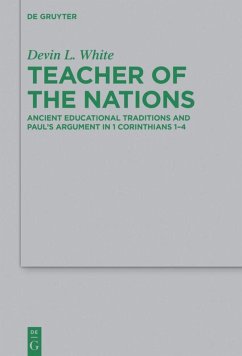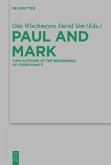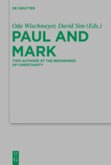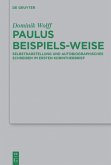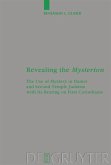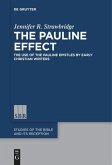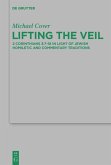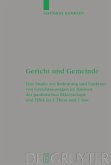Scholarship is divided on a point fundamental to the interpretation of 1 Corinthians 1-4: Are these chapters better read as a Pauline apology or as a Pauline censure? This study argues that Paul's argument is simultaneously apology and rebuke. By characterizing the Corinthian community as an ancient school, Paul depicts himself as a good but misunderstood teacher and the Corinthians as lackluster and unruly students. In support of this argument, White identifies numerous parallels between Paul's language, logic, and imagery in 1 Corinthians 1-4 and similar motifs in ancient Greek, Roman, and Jewish discussions of educational theory and practice. Especially significant is White's conclusion that Paul's educational language most closely resembles discussions of ancient primary education, not the rhetoric or philosophy studied in ancient higher education.
This book will be of interest to scholars of the Corinthian correspondence, Pauline specialists, and any scholar of antiquity interested in ancient Greek, Roman, Jewish, and Christian education.
This book will be of interest to scholars of the Corinthian correspondence, Pauline specialists, and any scholar of antiquity interested in ancient Greek, Roman, Jewish, and Christian education.

